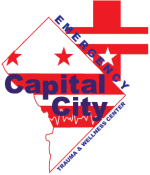8 ways for adults to model social emotional learning at home
MHA Admin
Tue, 09/06/2022 – 09:56
With children going back to school, it is crucial parents and guardians support the mental and emotional well-being of youth as they continue to grow and learn. MHA recently hosted a webinar led by Mestisa Gass, program director for MHA of Hawaii, where she discussed the importance of social emotional learning (SEL) for the mental health of school-aged children.
What is SEL?
SEL is the process through which an individual acquires and applies knowledge and skills to develop a healthy identity and includes emotional regulation, empathy, and interpersonal skills. For those new to SEL, there are four key competencies to keep in mind: awareness of self and other people; positive attitudes and values; responsible decision-making; and social interaction skills.
How can you model good SEL care at home?
Based on Gass’ presentation, here are eight tips for incorporating SEL into a child’s home life.
1. Take care of yourself.
Gass said, “Showing how to [practice self-care, coping skills, and resiliency] as an adult to the children in your life is really important because they get to see that people enact it, people can ask for help, people can take the time they need, and they feel more confident when they need to do that, as well.”
2. Be a good listener.
With busy schedules, choose a time to check in with your child, whether that’s at dinnertime, on the way to or from school, or before bedtime.
3. Model the behavior you want to see.
For example, practicing calming breathing techniques in front of a child allows them to ask questions and join in to learn what to do when they are feeling overwhelmed or anxious.
4. Nurture the child’s self-esteem.
Remember that adults come from a different generation than today’s kids. Gass said, “It’s important to also step back and think about the cultural values that you have around … self- identity and self-esteem.”
5. Respect differences.
Understand that every child has strengths and weaknesses. One may excel in math, while another is better at drawing.
6. Praise effort instead of ability.
Talk about effort rather than outcome. For example, don’t focus on whether they placed first in something, and instead talk about how they tried their best.
7. Discuss relationships and friendships.
This is an opportunity for a child to learn interpersonal skills and boundary setting within their own social circles, but also a great opening to show them what healthy relationships look like.
8. Help child maintain their physical health.
“Physical health is directly related to our mental health,” Gass said, and used the example that a child missing a nap or snack will make them irritable. Help children understand the connection between their bodies and how they feel.
From these SEL tips to incorporate with your child(ren), Gass said to “choose something simple” to get going rather than trying to implement each of these from the start and become overwhelmed. Learn more by watching the full webinar, and find more youth mental health resources in the MHA 2022 Back- to-School toolkit.







